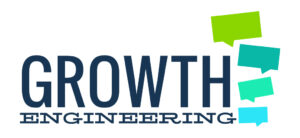How To Engage Employees With Your Organizational Culture
What do people mean when they talk about "employee engagement"? For some people, employee engagement means little more than a low rate of absenteeism and no serious productivity issues. In reality, engagement goes a lot deeper. The key to an engaged workforce is developing an organizational culture that the employees can relate to and feel a part of. As human beings, we are hardwired to seek out relationships based on shared values and goals.
History has taught us that cultures of collaboration thrive. In the words of Charles Darwin, "those who learned to collaborate and improvise most effectively have prevailed". This rule applies just as much in our corporate communities as it does in evolutionary biology.
The key transforming a stagnant organizational culture into a prosperous culture of collaboration lies in the training programme. If you want your people to grow together, you need to let them learn together.
Revitalising Organizational Culture With Social Learning
When we learn together we foster high-quality connections1. This means that we see the best in those we learn with, and they see the best in us. This mutuality is the foundation of a strong organizational culture – because we associate social learning with safety, feeling loved and feeling respected. When we learn together we feel more alive2.
However, learning together doesn’t always mean interacting in a training session. It’s something more dynamic and comprehensive. It goes beyond formal training content and focuses on the real meaning behind the organization. Here are 3 things you can do today to communicate a clearer organizational culture to your learners.
1. Identify Subject Matter Experts.
Subject Matter Experts are those with expertise in a specific aspect of business life. Yet, half the time these experts go unrecognized because there’s no mechanism in place to identify and capture their knowledge.
Once you’ve identified Subject Matter Experts, you need to harness their intellectual capital and put it to use. To make sure that their organizational knowledge doesn’t go to waste, team members need to easily find out who is an expert on what.
With a network of Subject Matter Experts, your learning platform can become a goldmine of organizational knowledge. As a bonus, the social interaction ensures that employees are helping contribute to a supportive and collaborative organizational culture.
2. Encourage Knowledge Sharing.
Since learning is an information based activity, better training comes from using social learning platforms that make knowledge sharing as easy as possible. Today’s most advanced learning management systems now let administrators create their own discussion forums on topics relevant to their business.
People can be slightly nervous to post on a discussion forum for the first time and employees might still need a gentle prod in the right direction. To get over this initial hurdle, encourage everyone to share something on the forum just to get them started.
This could be as simple as a quick introduction when they first join, or a link to a useful article. This paves the way for organic social learning and sows the seeds for a knowledge sharing culture. The relational learning3 that this stimulates engages everyone who takes part. Few things will have a bigger impact on your organizational culture than a supportive atmosphere of information sharing.
3. Focus On The ‘Epic Meaning’.
In any organization, the employees’ roles can vary greatly, so much so that they can forget they’re working to bring about the same organizational goals. Although training is often seen as a means of delivering operational knowledge, it should also be used to educate employees on the common purpose they share.
Many people tell themselves that they go to work simply to earn the salary they need to get by. What’s more, few organizations give their employees an alternative narrative to focus their efforts. The Epic Meaning behind your business is the story you tell your employees, and the greater cause that they can feel a part of.
Epic Meaning emerges when you infuse online learning content with the values that are important to your organization. It’s a natural consequence of staying focused on the founding principles at the heart of the business.
This meaning-rich content points to something bigger – something beyond the individual. It points to the collective impact of an organization and the good that it achieves. Importantly, it emphasises the role that each individual plays in bringing about this good.
Final Word
By creating a more collaborative learning program, you can generate a meaningful conversation between your employees and the company as a whole. It’s only by opening these lines of communication that you can establish the culture that’s right for your business.
Many engagement problems arise when the employees don’t understand the culture of the organization or their place in it. With this clear culture in place, you can attract and retain the kinds of people you need to achieve your organizational goals.
References:


